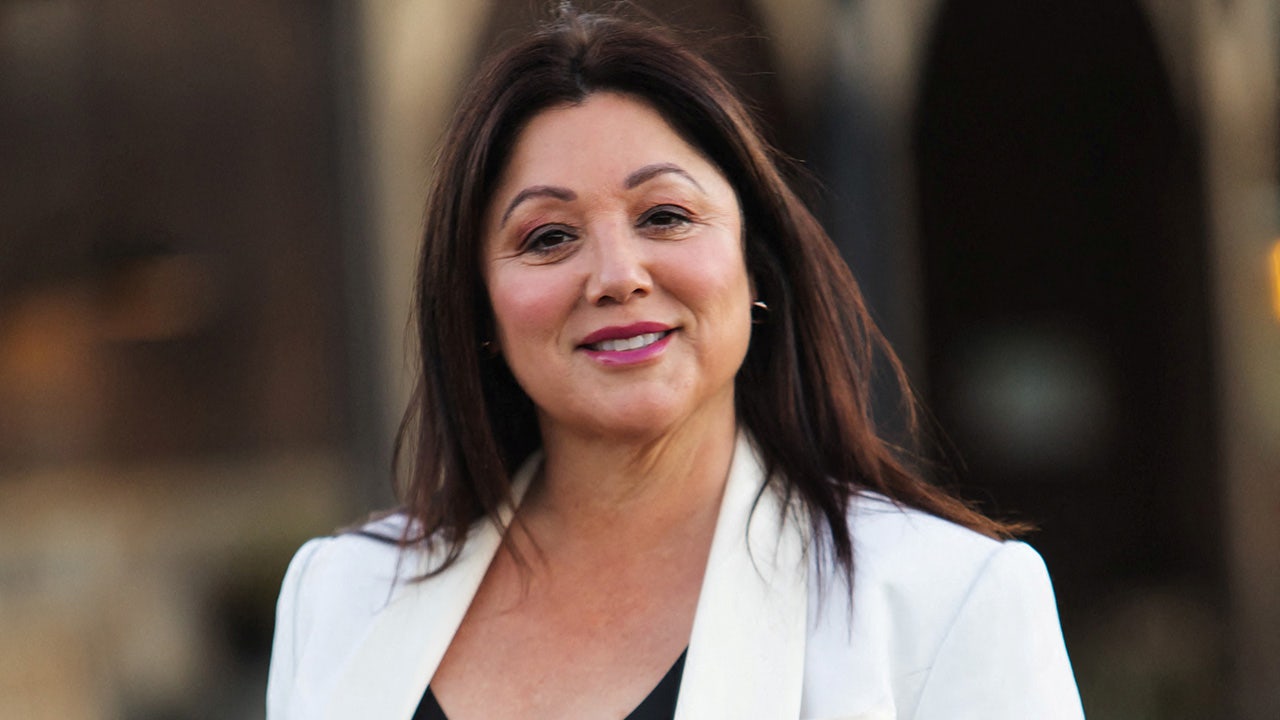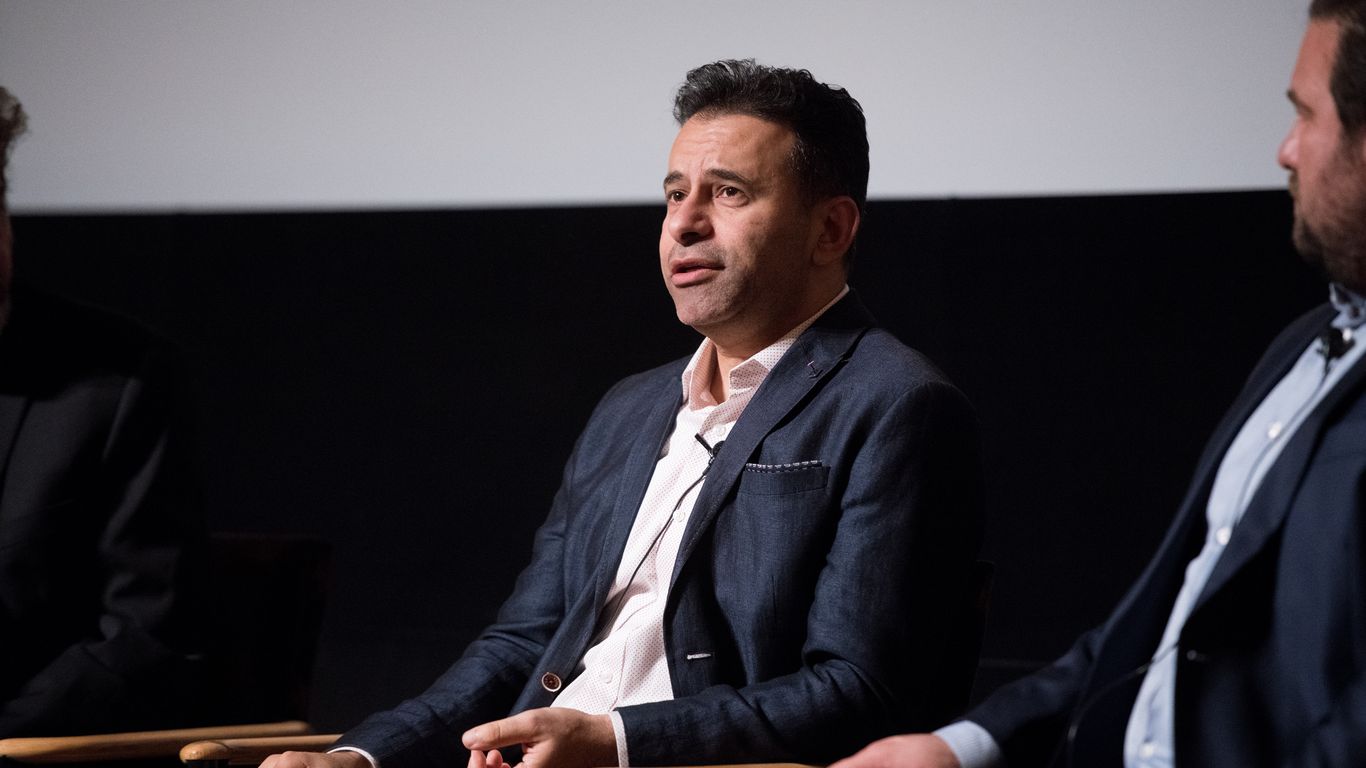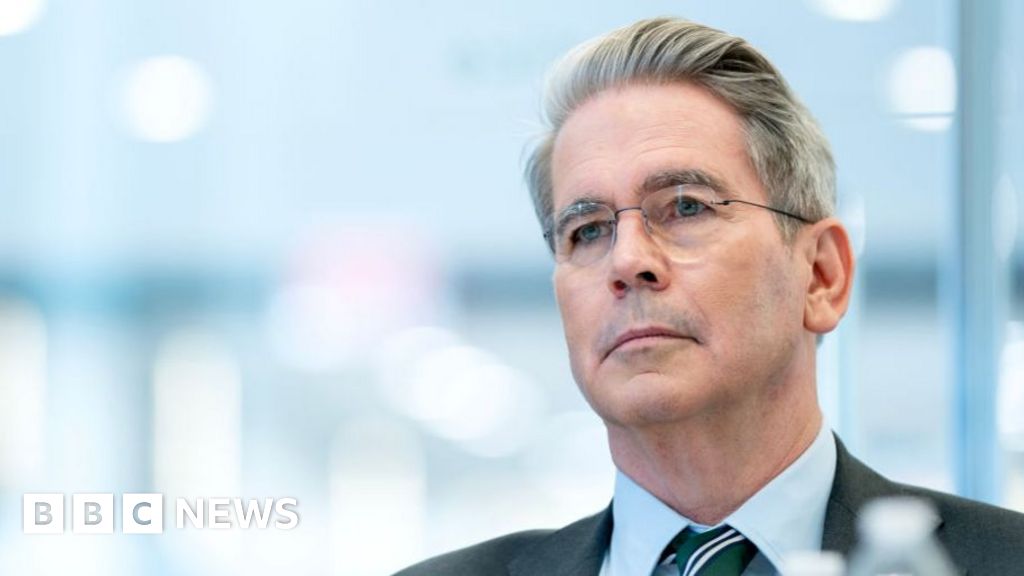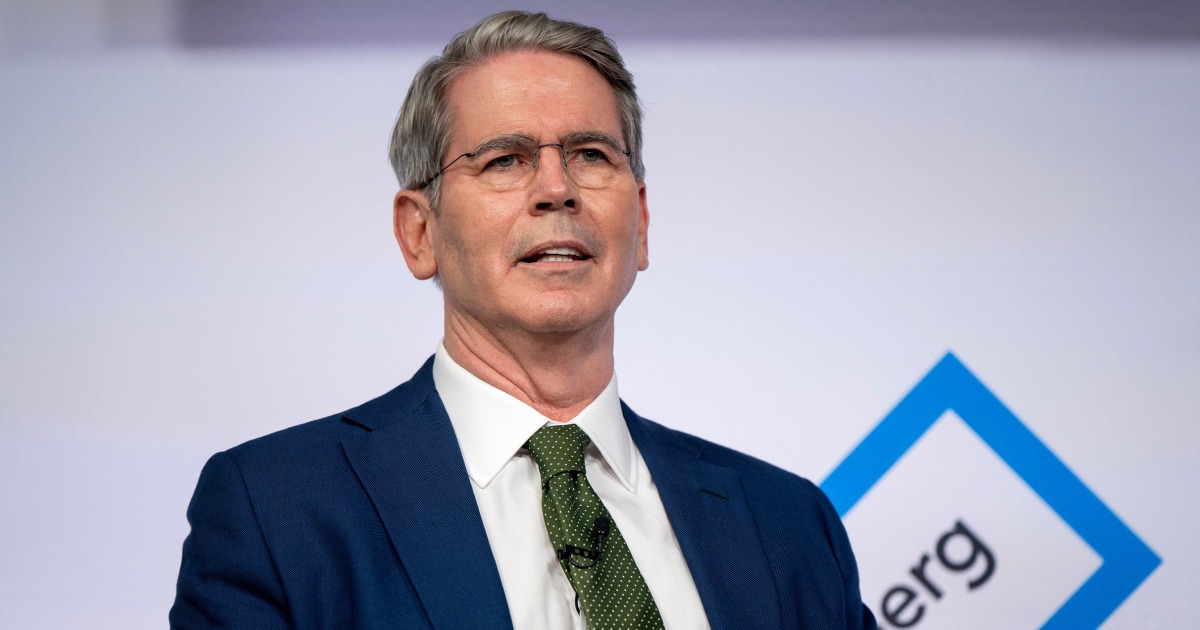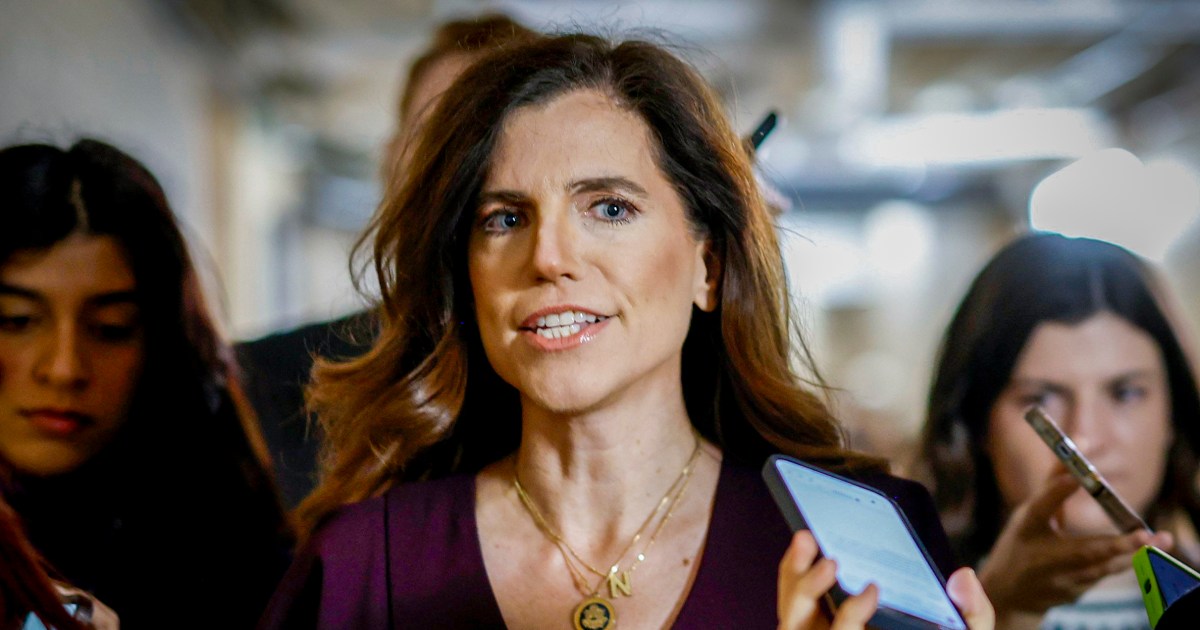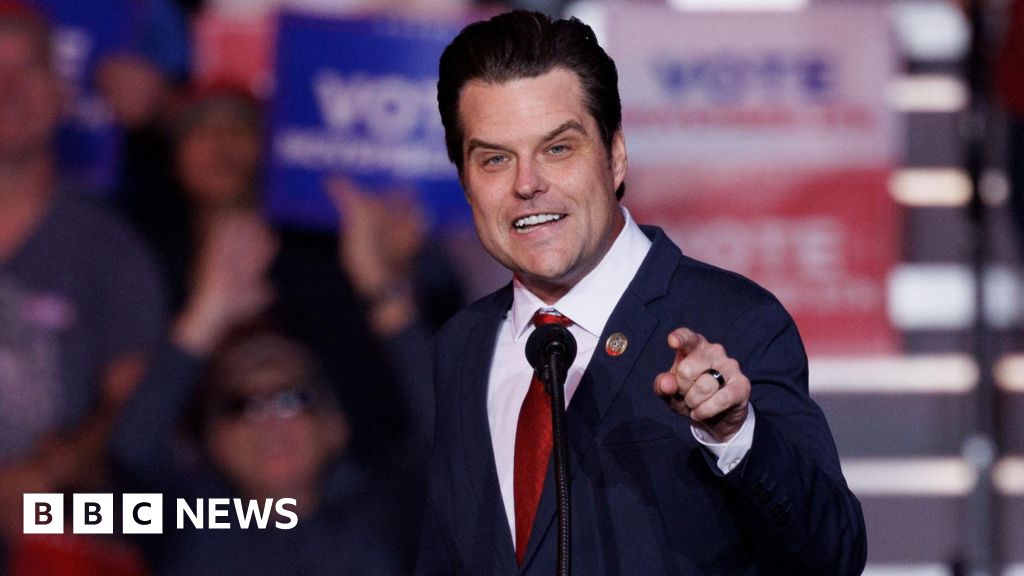
Matt Gaetz withdraws, Pam Bondi becomes Trump’s new AG nominee | The Excerpt
Posted on 11/22/2024

On Friday’s episode of The Excerpt podcast: Matt Gaetz couldn’t beat the criticism and controversy. He withdrew his nomination to be President-Elect Donald Trump’s Attorney General. Trump quickly named Florida’s top prosecutor, Pam Bondi, in his place. USA TODAY Congress & Campaigns Reporter Riley Beggin gives the inside details on what happened. Matt Gaetz isn’t the only controversial pick President-elect Donald Trump has announced. He continues to fill his Cabinet at a breakneck speed, outpacing other recent presidents, including himself during his first term. The architect of two of the most controversial policies from Donald Trump’s first term – the Muslim ban and the family separation police at the border – will again play a prominent role in Trump’s second presidency, likely leading the rollout of Trump’s promise for mass deportation. Judges at the International Criminal Court have issued arrest warrants for Israeli Prime Minister Benjamin Netanyahu and his former defense chief for alleged war crimes and crimes against humanity for its military response in Gaza. Bluesky – the relatively new social media platform created by the founders of Twitter – continues to rapidly grow, reaching 20 million users – many, who signed up after Donald Trump was elected earlier this month.
Hit play on the player below to hear the podcast and follow along with the transcript beneath it. This transcript was automatically generated, and then edited for clarity in its current form. There may be some differences between the audio and the text.
Podcasts: True crime, in-depth interviews and more USA TODAY podcasts right here
Sara Ganim:
Good morning. I'm Sara Ganim filling in for Taylor Wilson. Today is Friday, November 22nd, 2024. This is The Excerpt. Today embattled former Congressman Matt Gaetz withdraws his name from consideration to lead Trump's Justice Department. Plus the controversial architect of Trump's first term immigration policies is coming back for his second term. And the international criminal court issues an arrest warrant for Israeli Prime Minister Benjamin Netanyahu.
♦
From the start, President Trump's nomination of former Congressman Matt Gaetz to be his new attorney General was bogged down by the weight of controversy and allegations of misconduct. Gaetz had been investigated but never charged by the very department that he was to lead, for accusations that he paid for sex with a seventeen-year-old girl. On Thursday, Gaetz announced he was withdrawing from consideration to lead the Department of Justice. USA TODAY Congress and Campaigns Reporter Riley Beggin has the inside details of what happened. Hi, Riley. Thanks for joining me.
Riley Beggin:
Of course, anytime.
Sara Ganim:
Let's start with Gaetz's own words. What did he say about why he was withdrawing?
Riley Beggin:
He posted on X today and said that his confirmation was, "Unfairly becoming a distraction to the critical work of the Trump Vance transition." He is saying there was going to be a long fight in Washington so he's bowing out now.
Sara Ganim:
And tell us what do you think was going on behind the scenes that was driving this?
Riley Beggin:
Essentially, Matt Gaetz has a pretty sordid history, allegedly that was creating complications for his candidacy. So the Department of Justice, which is the agency that he would have led as Attorney General, had investigated allegations against him that he committed statutory rape by paying for sex with a seventeen-year-old girl and paying for her to travel with him across state lines, which would qualify as sex trafficking. So the DOJ dropped that without filing charges against him, but the House Ethics Committee, which we can talk more about, was investigating similar allegations. So there were just a lot of questions about whether he was qualified to be the top law enforcement officer given these allegations. And Republican senators, even those who are pretty aligned with Trump, they had some concerns.
Sara Ganim:
Do you think that Trump was starting to get nervous that he wasn't going to get confirmed?
Riley Beggin:
A couple of days ago, reporters asked Trump if he regretted nominating Gaetz and he simply said no. That could have been just sort of the public-facing argument, but whether it was Trump or Gaetz himself, obviously this was not going to work out for him.
Sara Ganim:
How are Republicans responding to this news?
Riley Beggin:
For the most part, Republicans who spoke with reporters today said this was appropriate. That's what Senate Republican leader Mitch McConnell said. And that's in line with what most other Republicans had said, that it's essentially good for the administration for him to bow out now, not to create more drama and allow them to consider nominees who have a better shot at getting confirmed. Of course, there are always those who are going to be sad about this. Senator Rick Scott from Florida said he was disappointed that Gaetz dropped out, but for the most part, I think Republicans seem pretty relieved that they get to close this chapter.
Sara Ganim:
The House Ethics Committee had been investigating Gaetz. What's the status of their findings, do you think we'll ever see that report?
Riley Beggin:
Yeah, so this has been one of the big intrigues on Capitol Hill this week. The House Ethics Committee were set to vote on whether to release the report just two days after Gaetz announced that he'd be resigning from Congress, which was around the time last week that this announcement came out that he would be the Attorney General pick. So the Ethics Committee met yesterday to vote on that. It's evenly divided, Republicans and Democrats on that panel. They deadlocked on whether to release it, but that said, a lot of that information has sort of been coming out over the last week. Lawyers for two women said that they spoke to the panel about Gaetz and that they saw him apparently on drugs having sex with someone who was 17 years old in 2017. That's again, all allegations. The Ethics Committee was set to come back together in December 5th to take another vote. Now that he's dropped out from consideration, it's unclear whether they will actually choose to go forward.
Sara Ganim:
What's next for Gaetz? Can he go back to being a member of Congress?
Riley Beggin:
So that is unclear. He was reelected for his seat in Congress, so it's possible that he could take that seat back. The downside of that for him is that he would be a member of the House again and it is likely that the House Ethics committee would then choose to release the report. At the moment, the big question about whether or not to release it has to do with the fact that he's no longer a member of Congress. I think you can probably expect him to instead maybe choose to run for Governor of Florida in 2026, but you never know. He could make an argument and decide to go back to the House.
Sara Ganim:
Riley Beggin covers Congress for USA TODAY. Thanks so much.
Riley Beggin:
Of course. Thank you.
Sara Ganim:
Thursday evening, Trump announced on X that his new nominee to lead the Justice Department will be former Florida Attorney General Pam Bondi. He cited her 18 years working as a prosecutor. The 59-year-old is a Trump ally who served as one of his defense attorneys during his first impeachment trial when he was accused of abusing his power by withholding military aid from Ukraine. The Senate later acquitted him of those charges.
♦
Matt Gaetz is not the only controversial pick that President-elect Donald Trump has announced he continues to fill his cabinet at a breakneck speed outpacing other recent presidents including himself during his first term. The cabinet taking shape is an unorthodox mix that includes billionaires, television personalities, outsider political figures, and ultra-MAGA firebrands. Trump is rewarding people who are most committed to his campaign and he's not taking the traditional steps to vet them. He's also forgoing other customary transition activities that might better prepare his administration to take over. One former aide said that's potentially a sign of mistrust as he plots big changes. He has long criticized federal agencies and accused them of undermining his goals. You can read more of this analysis by clicking the link in today's show notes.
♦
The architect of two of the most controversial policies from Donald Trump's first term, the Muslim ban and the Family separation policy at the border will again play a prominent role in Trump's second presidency, likely leading the rollout of his promise for mass deportation. My colleague Taylor Wilson spoke with USA TODAY Reporter Lauren Villagran for more details.
Taylor Wilson:
Thanks for hopping on, Lauren.
Lauren Villagran:
Great to be here. Taylor.
Taylor Wilson:
So Lauren, who is Stephen Miller? I mean what's really his background?
Lauren Villagran:
Stephen Miller, if he isn't already a household name in American households, he will be soon. Stephen Miller has been named the Deputy Chief of Staff for Immigration and Homeland Security. He is an advisor to President-elect Donald Trump. He was an advisor during the first administration, and his role is really important because he was one of the key architects of some of the president's most controversial immigration policies.
Taylor Wilson:
So which policies are we talking about? I mean, how did he really center himself at the heart of Trump immigration policy during the last Trump term?
Lauren Villagran:
So let's go back to the first administration 2017. You saw things like the so-called Muslim Ban, which prevented travelers and even legal residents from Muslim majority nations from returning to the country. It was a very chaotic rollout of that policy, which was eventually rolled back. You also saw Stephen Miller's fingerprints on family separation at the border in the zero tolerance policy that separated migrant parents for them to undergo prosecutions and took their children into a different process. Many of the children were lost. To this day, the government is still trying to reunite children and families who were separated during that time period. Miller was just a key architect of many of the policies on immigration that came to define the first Trump administration, and he's going to be right back there at the top in the White House come January.
Taylor Wilson:
Yeah. So this around, Lauren, what are some of the things he's now working on ahead of next year?
Lauren Villagran:
So Miller has talked a lot about how the second Trump administration will roll out the signature promise of the campaign, which was a mass deportation. He's started to offer specifics like how Trump will use a declaration of a national emergency, how he will employ the military and military bases to potentially create what Miller calls, "Staging grounds for removal flights." But what many Americans don't know is that Miller's interest in reforming the immigration system isn't just about managing immigration, it's really about stopping immigration, and I think that that's going to have impacts based on what he's said publicly on even the legal immigration system.
Taylor Wilson:
I'm curious, Lauren, how some defend Miller and what others say to criticize him. What did you find in reporting this piece? I know there was kind of a mixed bag of opinion on him.
Lauren Villagran:
So I think both critics and friends of Stephen Miller see him as a, quote unquote, "big thinker". He's someone who is obsessed with policy and creating policy and logistics to carry out the signature promises of President Trump, who he has followed and worked for from the very beginning of his very first campaign.
Taylor Wilson:
All right. Lauren Villagran covers immigration and the border for USA TODAY, bringing us some great insight as always. Thank you, Lauren.
Lauren Villagran:
Thanks, Taylor.
♦
Sara Ganim:
Judges at the International Criminal Court or ICC have issued arrest warrants for Israeli Prime Minister Benjamin Netanyahu and his former defense chief for alleged war crimes and crimes against humanity for its military response in Gaza. The United States joined Israel in condemning the warrant and rejecting the jurisdiction of the Hague-based court.
Benjamin Netanyahu:
The truth is simple. No war is more just than the war that Israel has been waging in Gaza after Hamas attacked us unprovoked, launching the worst massacre against the Jewish people since the Holocaust.
Sara Ganim:
White House Press Secretary, Karine Jean-Pierre says The US is discussing next steps with its partners, including Israel. The ICC says it does not matter if Israel accepts the jurisdiction.
♦
Bluekky, the relatively new social media platform created by the founders of Twitter continues to rapidly grow, reaching 20 million users. Many who signed up after Donald Trump was elected earlier this month. Meanwhile, X, formerly known as Twitter has watched as more than 115,000 people deactivated their accounts in the 24 hours after the election. Billionaire tech investor, Elon Musk took over Twitter two years ago, then renamed and restructured it. Users complained that it became a place with a lot of unchecked disinformation, conspiracy theories, harassment and abuse.
Musk then became increasingly vocal in support of right-wing issues and played a large role in President-elect Donald Trump's campaign. Now that Trump has been elected, Musk will be part of the new administration, working as part of the New Department of Government Efficiency or DOGE. Earlier this week, DOGE released a plan to oversee a massive reduction in the federal workforce, arguing that employees won't be needed after Trump eliminates thousands of regulations in his next administration.
♦
Thanks for listening to The Excerpt. We're produced by Shannon Rae Green and Kaely Monahan. Our executive producer is Laura Beatty. You can get the podcast wherever you get your audio, and if you're on a smart speaker, just ask for The Excerpt. I'm Sarah Ganim filling in for Taylor Wilson. I'll be back tomorrow with more of The Excerpt from USA TODAY.
Hit play on the player below to hear the podcast and follow along with the transcript beneath it. This transcript was automatically generated, and then edited for clarity in its current form. There may be some differences between the audio and the text.
Podcasts: True crime, in-depth interviews and more USA TODAY podcasts right here
Sara Ganim:
Good morning. I'm Sara Ganim filling in for Taylor Wilson. Today is Friday, November 22nd, 2024. This is The Excerpt. Today embattled former Congressman Matt Gaetz withdraws his name from consideration to lead Trump's Justice Department. Plus the controversial architect of Trump's first term immigration policies is coming back for his second term. And the international criminal court issues an arrest warrant for Israeli Prime Minister Benjamin Netanyahu.
♦
From the start, President Trump's nomination of former Congressman Matt Gaetz to be his new attorney General was bogged down by the weight of controversy and allegations of misconduct. Gaetz had been investigated but never charged by the very department that he was to lead, for accusations that he paid for sex with a seventeen-year-old girl. On Thursday, Gaetz announced he was withdrawing from consideration to lead the Department of Justice. USA TODAY Congress and Campaigns Reporter Riley Beggin has the inside details of what happened. Hi, Riley. Thanks for joining me.
Riley Beggin:
Of course, anytime.
Sara Ganim:
Let's start with Gaetz's own words. What did he say about why he was withdrawing?
Riley Beggin:
He posted on X today and said that his confirmation was, "Unfairly becoming a distraction to the critical work of the Trump Vance transition." He is saying there was going to be a long fight in Washington so he's bowing out now.
Sara Ganim:
And tell us what do you think was going on behind the scenes that was driving this?
Riley Beggin:
Essentially, Matt Gaetz has a pretty sordid history, allegedly that was creating complications for his candidacy. So the Department of Justice, which is the agency that he would have led as Attorney General, had investigated allegations against him that he committed statutory rape by paying for sex with a seventeen-year-old girl and paying for her to travel with him across state lines, which would qualify as sex trafficking. So the DOJ dropped that without filing charges against him, but the House Ethics Committee, which we can talk more about, was investigating similar allegations. So there were just a lot of questions about whether he was qualified to be the top law enforcement officer given these allegations. And Republican senators, even those who are pretty aligned with Trump, they had some concerns.
Sara Ganim:
Do you think that Trump was starting to get nervous that he wasn't going to get confirmed?
Riley Beggin:
A couple of days ago, reporters asked Trump if he regretted nominating Gaetz and he simply said no. That could have been just sort of the public-facing argument, but whether it was Trump or Gaetz himself, obviously this was not going to work out for him.
Sara Ganim:
How are Republicans responding to this news?
Riley Beggin:
For the most part, Republicans who spoke with reporters today said this was appropriate. That's what Senate Republican leader Mitch McConnell said. And that's in line with what most other Republicans had said, that it's essentially good for the administration for him to bow out now, not to create more drama and allow them to consider nominees who have a better shot at getting confirmed. Of course, there are always those who are going to be sad about this. Senator Rick Scott from Florida said he was disappointed that Gaetz dropped out, but for the most part, I think Republicans seem pretty relieved that they get to close this chapter.
Sara Ganim:
The House Ethics Committee had been investigating Gaetz. What's the status of their findings, do you think we'll ever see that report?
Riley Beggin:
Yeah, so this has been one of the big intrigues on Capitol Hill this week. The House Ethics Committee were set to vote on whether to release the report just two days after Gaetz announced that he'd be resigning from Congress, which was around the time last week that this announcement came out that he would be the Attorney General pick. So the Ethics Committee met yesterday to vote on that. It's evenly divided, Republicans and Democrats on that panel. They deadlocked on whether to release it, but that said, a lot of that information has sort of been coming out over the last week. Lawyers for two women said that they spoke to the panel about Gaetz and that they saw him apparently on drugs having sex with someone who was 17 years old in 2017. That's again, all allegations. The Ethics Committee was set to come back together in December 5th to take another vote. Now that he's dropped out from consideration, it's unclear whether they will actually choose to go forward.
Sara Ganim:
What's next for Gaetz? Can he go back to being a member of Congress?
Riley Beggin:
So that is unclear. He was reelected for his seat in Congress, so it's possible that he could take that seat back. The downside of that for him is that he would be a member of the House again and it is likely that the House Ethics committee would then choose to release the report. At the moment, the big question about whether or not to release it has to do with the fact that he's no longer a member of Congress. I think you can probably expect him to instead maybe choose to run for Governor of Florida in 2026, but you never know. He could make an argument and decide to go back to the House.
Sara Ganim:
Riley Beggin covers Congress for USA TODAY. Thanks so much.
Riley Beggin:
Of course. Thank you.
Sara Ganim:
Thursday evening, Trump announced on X that his new nominee to lead the Justice Department will be former Florida Attorney General Pam Bondi. He cited her 18 years working as a prosecutor. The 59-year-old is a Trump ally who served as one of his defense attorneys during his first impeachment trial when he was accused of abusing his power by withholding military aid from Ukraine. The Senate later acquitted him of those charges.
♦
Matt Gaetz is not the only controversial pick that President-elect Donald Trump has announced he continues to fill his cabinet at a breakneck speed outpacing other recent presidents including himself during his first term. The cabinet taking shape is an unorthodox mix that includes billionaires, television personalities, outsider political figures, and ultra-MAGA firebrands. Trump is rewarding people who are most committed to his campaign and he's not taking the traditional steps to vet them. He's also forgoing other customary transition activities that might better prepare his administration to take over. One former aide said that's potentially a sign of mistrust as he plots big changes. He has long criticized federal agencies and accused them of undermining his goals. You can read more of this analysis by clicking the link in today's show notes.
♦
The architect of two of the most controversial policies from Donald Trump's first term, the Muslim ban and the Family separation policy at the border will again play a prominent role in Trump's second presidency, likely leading the rollout of his promise for mass deportation. My colleague Taylor Wilson spoke with USA TODAY Reporter Lauren Villagran for more details.
Taylor Wilson:
Thanks for hopping on, Lauren.
Lauren Villagran:
Great to be here. Taylor.
Taylor Wilson:
So Lauren, who is Stephen Miller? I mean what's really his background?
Lauren Villagran:
Stephen Miller, if he isn't already a household name in American households, he will be soon. Stephen Miller has been named the Deputy Chief of Staff for Immigration and Homeland Security. He is an advisor to President-elect Donald Trump. He was an advisor during the first administration, and his role is really important because he was one of the key architects of some of the president's most controversial immigration policies.
Taylor Wilson:
So which policies are we talking about? I mean, how did he really center himself at the heart of Trump immigration policy during the last Trump term?
Lauren Villagran:
So let's go back to the first administration 2017. You saw things like the so-called Muslim Ban, which prevented travelers and even legal residents from Muslim majority nations from returning to the country. It was a very chaotic rollout of that policy, which was eventually rolled back. You also saw Stephen Miller's fingerprints on family separation at the border in the zero tolerance policy that separated migrant parents for them to undergo prosecutions and took their children into a different process. Many of the children were lost. To this day, the government is still trying to reunite children and families who were separated during that time period. Miller was just a key architect of many of the policies on immigration that came to define the first Trump administration, and he's going to be right back there at the top in the White House come January.
Taylor Wilson:
Yeah. So this around, Lauren, what are some of the things he's now working on ahead of next year?
Lauren Villagran:
So Miller has talked a lot about how the second Trump administration will roll out the signature promise of the campaign, which was a mass deportation. He's started to offer specifics like how Trump will use a declaration of a national emergency, how he will employ the military and military bases to potentially create what Miller calls, "Staging grounds for removal flights." But what many Americans don't know is that Miller's interest in reforming the immigration system isn't just about managing immigration, it's really about stopping immigration, and I think that that's going to have impacts based on what he's said publicly on even the legal immigration system.
Taylor Wilson:
I'm curious, Lauren, how some defend Miller and what others say to criticize him. What did you find in reporting this piece? I know there was kind of a mixed bag of opinion on him.
Lauren Villagran:
So I think both critics and friends of Stephen Miller see him as a, quote unquote, "big thinker". He's someone who is obsessed with policy and creating policy and logistics to carry out the signature promises of President Trump, who he has followed and worked for from the very beginning of his very first campaign.
Taylor Wilson:
All right. Lauren Villagran covers immigration and the border for USA TODAY, bringing us some great insight as always. Thank you, Lauren.
Lauren Villagran:
Thanks, Taylor.
♦
Sara Ganim:
Judges at the International Criminal Court or ICC have issued arrest warrants for Israeli Prime Minister Benjamin Netanyahu and his former defense chief for alleged war crimes and crimes against humanity for its military response in Gaza. The United States joined Israel in condemning the warrant and rejecting the jurisdiction of the Hague-based court.
Benjamin Netanyahu:
The truth is simple. No war is more just than the war that Israel has been waging in Gaza after Hamas attacked us unprovoked, launching the worst massacre against the Jewish people since the Holocaust.
Sara Ganim:
White House Press Secretary, Karine Jean-Pierre says The US is discussing next steps with its partners, including Israel. The ICC says it does not matter if Israel accepts the jurisdiction.
♦
Bluekky, the relatively new social media platform created by the founders of Twitter continues to rapidly grow, reaching 20 million users. Many who signed up after Donald Trump was elected earlier this month. Meanwhile, X, formerly known as Twitter has watched as more than 115,000 people deactivated their accounts in the 24 hours after the election. Billionaire tech investor, Elon Musk took over Twitter two years ago, then renamed and restructured it. Users complained that it became a place with a lot of unchecked disinformation, conspiracy theories, harassment and abuse.
Musk then became increasingly vocal in support of right-wing issues and played a large role in President-elect Donald Trump's campaign. Now that Trump has been elected, Musk will be part of the new administration, working as part of the New Department of Government Efficiency or DOGE. Earlier this week, DOGE released a plan to oversee a massive reduction in the federal workforce, arguing that employees won't be needed after Trump eliminates thousands of regulations in his next administration.
♦
Thanks for listening to The Excerpt. We're produced by Shannon Rae Green and Kaely Monahan. Our executive producer is Laura Beatty. You can get the podcast wherever you get your audio, and if you're on a smart speaker, just ask for The Excerpt. I'm Sarah Ganim filling in for Taylor Wilson. I'll be back tomorrow with more of The Excerpt from USA TODAY.
Comments( 0 )
0 0 3
0 0 3
0 0 5




